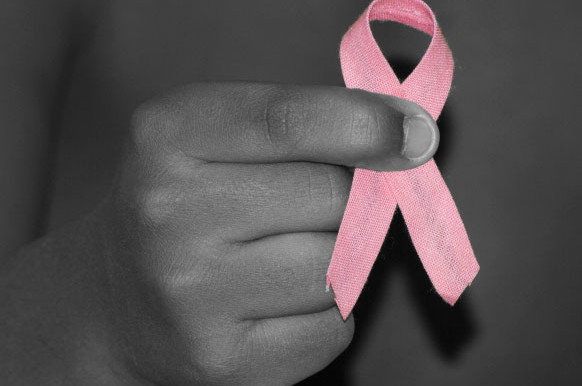Feature: Breast cancer patients suffer in silence amid neglect

“One of my friends lost her life in Rejaf due to breast cancer because the disease was not identified early. It is so painful, many people lack awareness about breast cancer,” said Nura Juma, a resident of Juba.
According to Nura, patients diagnosed with breast cancer also share the fear of not being able to get the medication they need because in South Sudan, where a devastating economic crisis has upended daily life, there are no specialized centres for the treatment of breast cancer.
"Also, many women in remote areas know nothing about breast cancer. So, health awareness is very important," said Nura.
According to the WHO, in 2020, there were 2.3 million women diagnosed with breast cancer and 685 000 deaths globally. As of the end of 2020, there were 7.8 million women alive who were diagnosed with breast cancer in the past 5 years, making it the world’s most prevalent cancer.
Breast cancer treatment can be highly effective, especially when the disease is identified early. Treatment of breast cancer often consists of a combination of surgical removal, radiation therapy and medication (hormonal therapy, chemotherapy and/or targeted biological therapy) to treat microscopic cancer that has spread from the breast tumour through the blood. Such treatment, which can prevent cancer growth and spread, thereby saves lives.
"The government has not established a centre for treatment of breast cancer patients, it is important for us to have it," said Mama Nadia, a resident of Juba.
She appealed to lactating mothers to breastfeed their babies, saying it also helps reduce the risk of contracting breast cancer.
Doctors’ concern
Stakeholders in the healthcare sector have raised concern over the high number of patients suffering from breast cancer amid zero government support.
Oromo Francis, a malignant diseases specialist, says breast cancer can occur in both men and women, but it's far more common in women.
According to Francis, substantial support for breast cancer awareness in South Sudan is desperately needed to help create advances in the diagnosis and treatment of breast cancer.
"In South Sudan, we can diagnose the disease, but the absence of screening and oncology centres poses a major challenge," said Francis.
He advised anyone who experiences breast pain, especially if it is severe or persistent, to consult a healthcare professional.
The medical doctor said all the risk factors for breast cancer are rampant in South Sudan: tobacco smoking, alcohol consumption, physical inactivity, and obesity.
Mark Ajak, an infectious diseases researcher and medical laboratory specialist, said: "Health facilities in the country do not have equipment for diagnosing breast cancer."
Mark admitted that women diagnosed with breast cancer find it difficult to receive chemotherapy due to the poor healthcare system in South Sudan, saying some patients often seek medical treatment abroad.
Meanwhile, Nyawech Peter Gatkuoth, a medical doctor, revealed that South Sudan does not have a mammogram machine. She said doctors use a mammogram to look for early signs of breast cancer, adding that regular mammograms are the best tests doctors have to find breast cancer early.
"I lost close people to breast cancer. If we had machines in South Sudan, the situation would have been different, because when a woman reaches the age of 40, she must be examined every six months."
The price of a mammography machine is roughly 50,000 USD.
Nyawech said the Ministry of Health and its partners should embark on a concerted effort to raise awareness about breast cancer, besides a plan for the establishment of public diagnostic and treatment facilities.
Officials at the National Ministry of Health could not immediately be reached for comment.
October is Breast Cancer Awareness Month, an annual campaign to raise awareness about the impact of breast cancer.